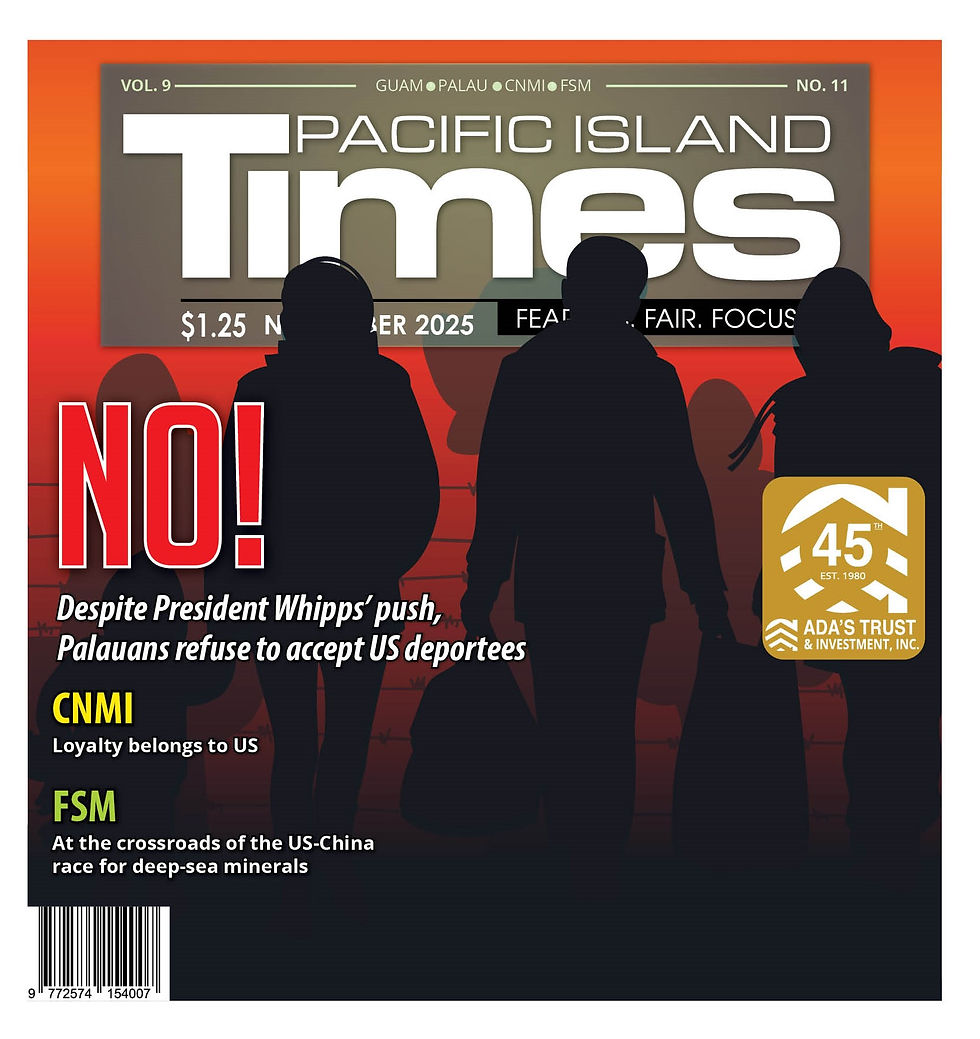In a fractured world, COP30 must prove that multilateralism still works
- Admin

- Nov 4
- 2 min read
Updated: Nov 5

The world arrives in Belém for COP30 at a moment of profound division. The international system is being tested in ways we have not seen in decades.
Yet the climate crisis does not wait for stability. It touches every community on Earth, from small islands in the Pacific to farming heartlands on every continent.
It demands that, even in a fractured world, we still
find common purpose.
Over the past year, too many environmental negotiations have fallen at the final hurdle. Talks on financing green shipping, a treaty on plastic pollution, and a protocol on drought all ended without agreement.
In that context, COP29 in Baku was a rare bright spot. Against expectations, countries came together to deliver historic outcomes that will help mobilise the trillions of dollars required for developing nations to act on climate change.
At the heart of those achievements was the Baku Finance Goal. This was the largest financial commitment ever made through the United Nations. It triples the previous target for donors to mobilise $300 billion a year in climate finance for the developing world by 2035, and it sets an even broader ambition to scale total climate finance from all sources to $1.3 trillion per year.
That is money that can build solar farms and wind turbines, fund flood defences and drought-resilient crops, and create livelihoods in communities that bear the brunt of the crisis.
This breakthrough matters because finance is the oxygen of climate action. Without predictable and affordable finance, developing countries cannot invest in clean energy, cannot adapt to rising seas, and cannot build the resilience
their people deserve.
The Baku Finance Goal was not an endpoint but a starting line. Its companion process, the Baku-to-Belém Roadmap, now sets out how governments,
multilateral development banks, and private and philanthropic actors
can scale up capital flows.
It sets a pathway for us to unleash torrents, not trickles. It demonstrates that success is possible, but will require political will and global action. And it can be a central focus for collective action to reform our financial architecture. As countries, financial institutions, the private sector, and civil society all meet in Belem for COP30, we can work together on the next steps in the roadmap.
For small-island developing states, this is not an abstract discussion. Climate finance means coastal protection, food security, and survival. When I visited island nations from the Pacific to the Caribbean during our presidency, their moral leadership inspired the principle that guided our work in Baku; those
who have contributed least to climate change should not face it alone.
That is why a crucial measure of success in Belém will be whether donor countries honour the promises they have already made. Chief among these is the pledge, first made in Glasgow at COP26, to double adaptation finance by 2025. The deadline is now upon us. For communities on the frontlines, the difference between delivered and delayed finance will decide whether they can protect homes, water supplies, and food systems before more cyclone seasons arrive.
We also need donors to follow through on their commitments to triple the UN
climate funds by 2030. This includes the Green Climate Fund, the Adaptation Fund, and the new Fund for Responding to Loss and Damage among others that are specialised in providing high-quality climate finance. This requires substantial contributions now.
There have been many discouraging headlines about shrinking aid budgets
and shifting priorities. But climate support is not charity; it is a collective
investment in a safer world. Every dollar spent on prevention saves many
more in disaster response. Every project financed in the developing world strengthens global resilience.
At COP30, the Azerbaijani Presidency will stand beside our Brazilian colleagues to hold donors to account. We will remind them that the credibility of the entire process rests on delivery. We will work with all partners to ensure that the
pledges from Baku start to become real in Belem.
The progress at COP29 proved that cooperation is still possible. Now COP30
must prove that it can deliver. The test at Belém is not whether we can draft
another declaration, but whether we can implement what we have already agreed. For the Pacific and for the planet, that test cannot be failed.
Mukhtar Babayev is the president of COP29.
Subscribe to
our digital
monthly edition






